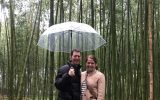PLEASE NOTE: Our ongoing efforts to check in with travelers who are currently overseas does not mean we advocate travel during the COVID-19 pandemic. The U.S. State Department has advised U.S. citizens to reconsider travel abroad. Public health officials advise older adults and people with underlying health conditions to abstain from travel entirely. They also recommend “social distancing” for everyone, which means keeping about six feet of space between yourself and others, which is hard to do on planes or trains and in airports. That said, Japan is no longer on the CDC’s list of high-risk countries to avoid. The U.S. has now surpassed Japan in the number of coronavirus cases and deaths.
Bill Schierl and Sarena Melotte are in Tokyo today. The husband and wife, who live in Wisconsin, had planned the trip to see Sarena’s old college friend and to spend time in Kyoto, Kanazawa, and Tokyo on a week-long journey scheduled to start March 8. As the date approached and the coronavirus spread, they had a decision to make: Japan’s coronavirus case load seemed to be leveling out, while in contrast, the U.S.’s cases were on track to surpass it. As of today, that’s the reality: According to Johns Hopkins, the U.S. is suffering with 2,345 known cases (50 deaths) and trending upward, while Japan has 773 (22 deaths) and the curve is flattening. After a lot of consideration, they decided to go ahead with the trip. We talked to them on March 13 as they arrived in Tokyo, to hear about their experiences and understand their decision-making process.
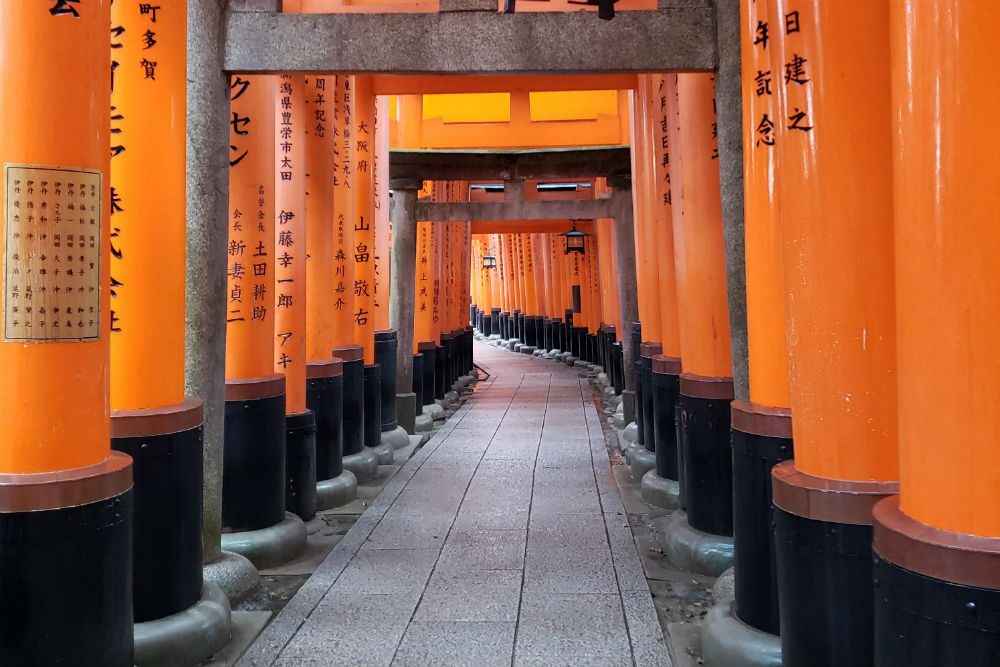
Fushimi Inari Shrine, Kyoto. Photo courtesy Bill Schierl
What is it like to travel in Japan during this time of the virus? How does it feel?
Sarena: There is a sense of heightened awareness. We were in China last year, and that’s also a culture that wears face masks all the time anyway, so to see that here isn’t a culture shock for us. But knowing why. Still, I felt pretty comfortable; we are taking all the standard precautions.
Bill: Overall, I think people are a little happy to have tourism. Our guide this morning said 50 percent of her business canceled. That’s very typical—even walking to the bamboo forest and through the shop areas, there’s just no people. You hear about the economics of something like this on the news, but in real life, you see the economics: the person who is running a small little vendor shop and there’s no one walking by anymore.
Sarena: In Kyoto, a man told us that he had not seen foreigners since January. He owns a business and he was very happy that we came in. It’s a sad situation when that’s the reaction you’re getting. We don’t want to be portrayed that we were very flippant about [the decision to come to Japan] or didn’t weigh it heavily. We didn’t want to be seen as the obnoxious Americans who didn’t take into account the greater good, who were just “Yay, there’s nobody here, this is great.” While it was nice that there weren’t a lot of people, we always knew why. Everyone we’ve met has just been lovely. Two older women on the bus this morning were all smiles, and everyone is going the extra mile. The taxi driver literally got out of the car and pointed to where we were going to make sure we got to the right place. Everyone was so helpful.
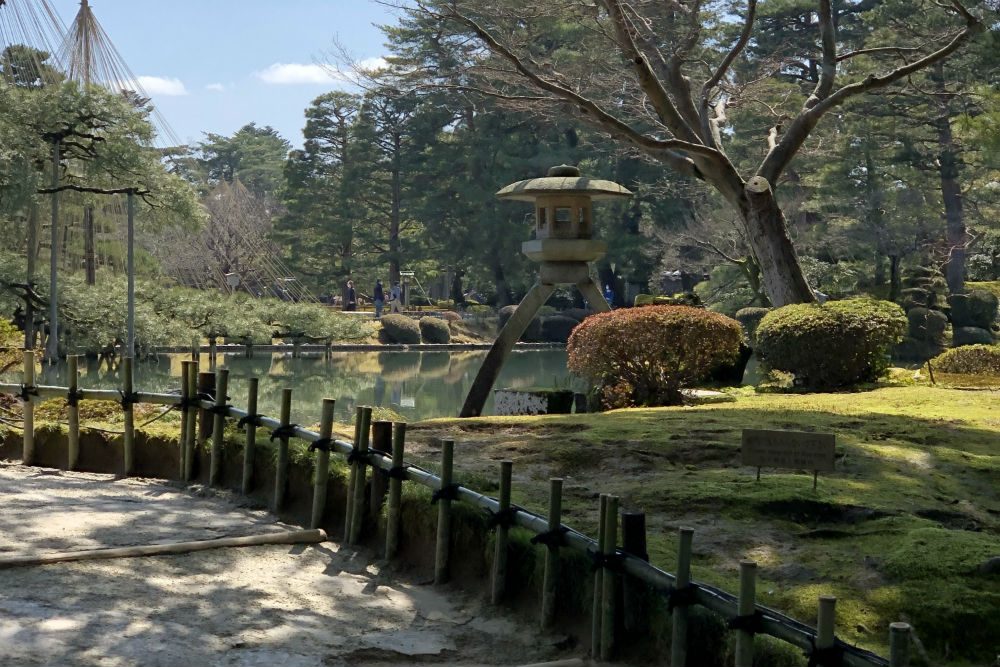
A garden in Kyoto, one of many places with very few tourists. Photo courtesy Bill Schierl
How is it affecting what you’re doing and seeing?
Bill: The 21st Century Museum of Contemporary Art was closed in Kyoto, but you could still enter the building and see some exhibits. TeamLab was closed in Tokyo. Some of the samurai homes were closed yesterday. But in Japan, so much of what you’re going to see anyway is a temple or a garden, or bamboo gardens. We’ve been outdoors 95% of our days. That’s what we’ve felt best about is that we’ve been outside most of the time.
Sarena: Our itinerary hasn’t really changed, but it’s hard to compare apples to apples. When we walked through the samurai district, we could take a photo with no one behind us. Our guide said it was weird; there was a school near us and it was unusual that you wouldn’t hear the sound of children. There was literally no one in it. But on a normal day it would have been extremely busy.
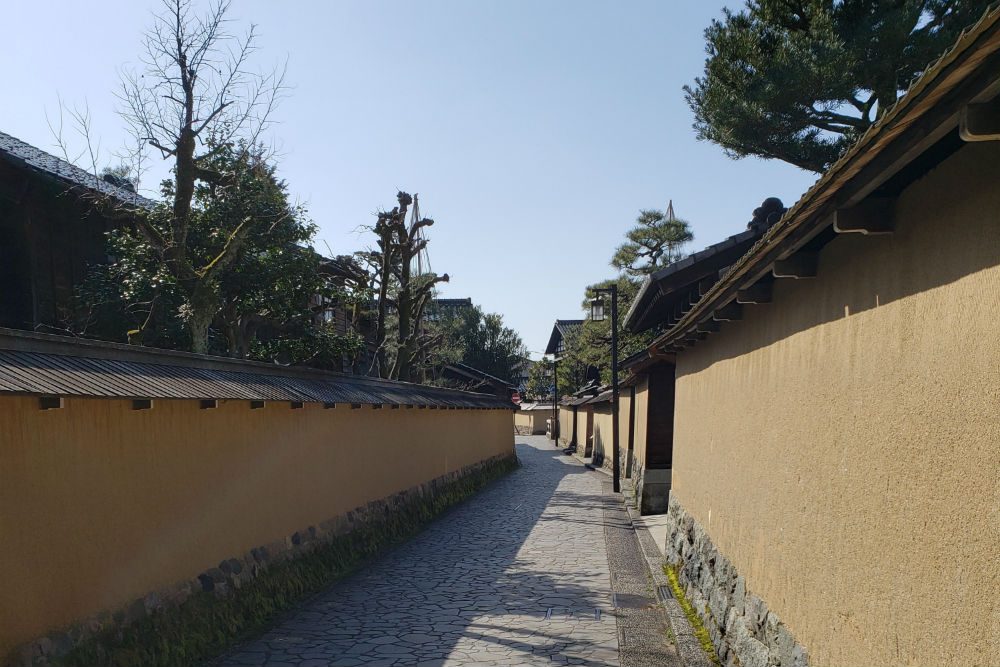
The samurai district of Nagamachi, Kanazawa. Photo courtesy Bill Schierl
Are you seeing fewer crowds everywhere?
Bill: The major train station in Tokyo is still busy. There’s people around; we can only assume that there’s less people around by Tokyo standards.
Sarena: Let’s put it this way: We got out of the train station and jumped right in a taxi, there was no queue.
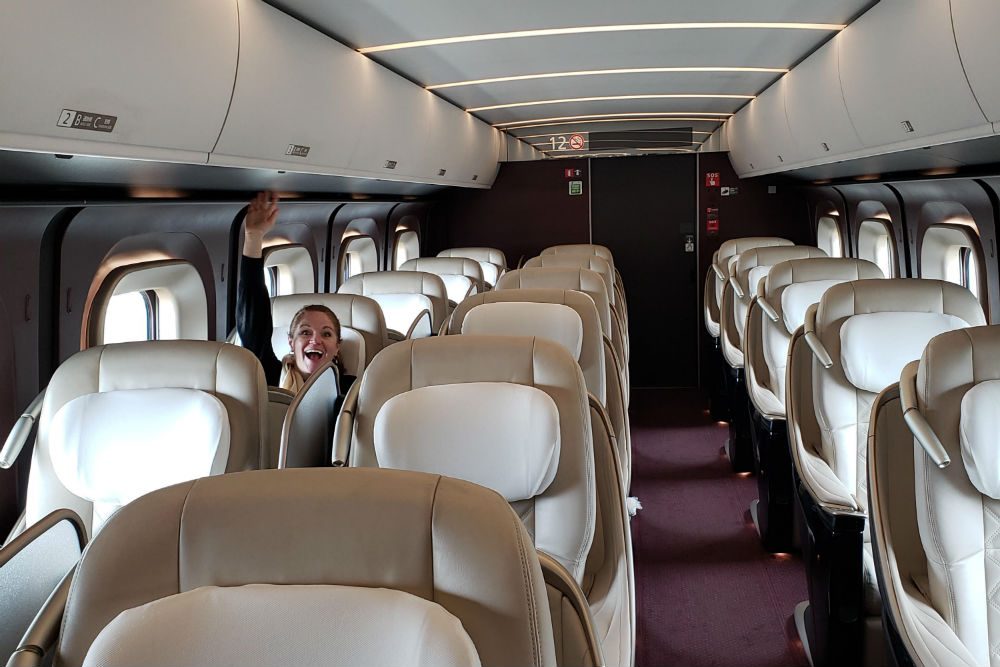
An empty Shinkansen train. Photo courtesy Bill Schierl
The U.S. now has more cases than Japan. Do you feel safer there than you would here?
Sarena: It helped knowing that the culture that we were stepping into was for-the good-of-the-group minded, that everyone is doing their part. The hotel staff was showing us how to work the TV and it turned on to a sumo match and there wasn’t anyone in the audience. Japan had started these practices two to three weeks ago. We’re scrolling through social media today, and our community at home is only now feeling the effects: social distancing and our local university ending classes. I really don’t know what we’re going to step into at home.
Bill: The average person on the street here has remained welcoming and we haven’t felt anyone to be distancing, even riding mass transportation. Based on our own CDC’s recommendations, we’ve chosen not to wear masks because when you put it on you touch your face more and it doesn’t prevent it. But here, there is probably only one percent of the population that we see unmasked. But nobody has moved a seat if we sat down next to them.
What were the pros and cons that you considered as you were deciding whether to take the trip or cancel it?
Sarena: Number one on our list was being socially responsible: all the health reasons, and also we didn’t want to be the two people who leave our small community, travel, and come back sick—so we are going to take precautions and monitor our own health.
Bill: A con was that there’s not any travel insurance you can get that fully covers cancellation because of epidemics or pandemics. A pro was that Japan has a culture of cleanliness and knowing that everyone already wears masks, that they were already at a heightened sense of dealing with the virus and had already taken steps. We felt a little more comfortable that way. And the Delta flight home was still going. And before leaving, at that time Japan did not have an escalating number of cases; the curve had already flattened.
Also, we registered with the STEP program, so the embassy here knew that we were in the country and we’ve received alerts and information. So it was a pro, knowing beforehand that there was a U.S. embassy and that if things came to the worst, we had a place to go and take refuge. What the reality of this is, I don’t know, and I’m glad we haven’t had to know, but it was a sense of comfort knowing before we left. And we packed in preparation, in case we got ill. We had go-bags and all the things from home you would want if you were sick.
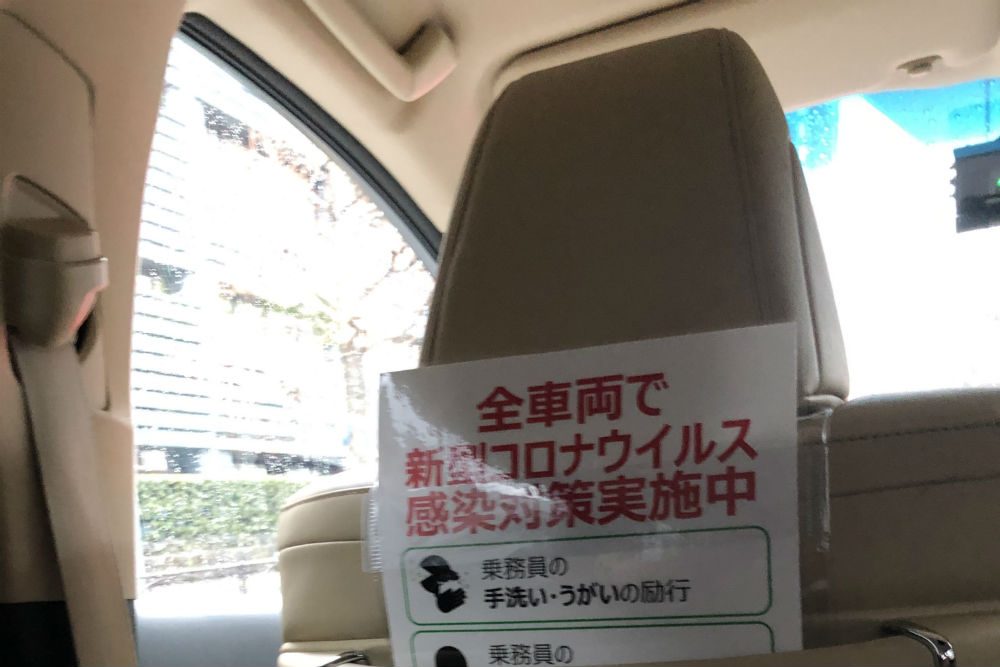
Coronavirus safety signs are posted in trains and cars. Photo courtesy Bill Schierl
How did the President’s speech and new travel restrictions for Europe affect your thinking?
Bill: We haven’t really followed the news in the last week that we’ve been here—it’s as vacation goes. In the last two nights there wasn’t even a television available. We are flying into Minnesota, which is an airport that is not doing any restrictions and health verifications. My question was, should we come home immediately, but this morning we called Delta and found out the flight is still a go—it’s not being rerouted. So we’re feeling comfortable that it will be ok. But just knowing that all of a sudden they banned travel from Europe as a whole—just saying Europe was a broad brush—we were concerned that they could all of a sudden say Asia. That created a little nervousness and desire for verification.
Did any officials in Japan tell you anything about the virus or protection concerns or possible quarantines when you entered the country?
Bill: People talked about the virus openly and there were messages around, but there was no one who spoke to us at customs.
Sarena: There was nothing in your face, but there were definitely overhead announcements on public transportation. At every single shop they covered the hand driers to decrease the touch points, and every single shop and restaurant has hand sanitizers right at the door. I have never used this much hand sanitizer. And I never realized how much my nose itches.
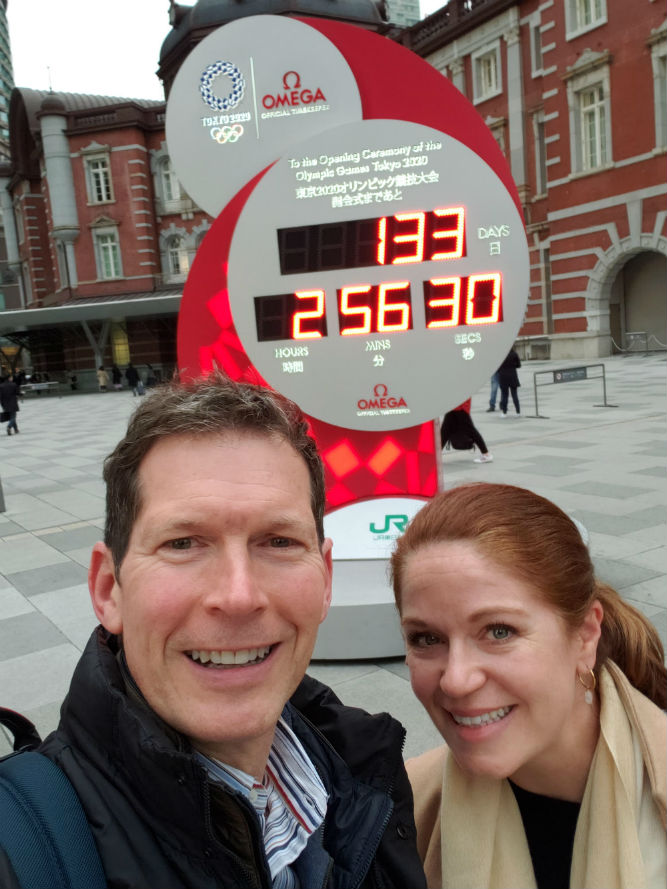
Countdown to the Tokyo Olympics, originally scheduled for summer 2020 but which may be postponed. Photo courtesy Bill Schierl

